For moms who are feeling fatigued, sleep deprived and way too anxious at bedtime…
You’re exhausted and yet when the sun sets and it comes time for bed, you can’t sleep at all. You toss and turn. You wonder if your child/baby is actually safe (despite all the precautions you take to ensure that they are). You go over the day’s ups and downs and ruminate over what could have gone better or whatever upset you.
Pretty soon, it has been an hour or two since turning out the lights and you’re still wide awake… despite feeling so fatigued all day long. Or maybe you fall asleep, but after getting up to feed your baby, you lay wide-awake and can’t drift off again.
Sound like your reality these days? This could be anxiety-related insomnia.

I remember experiencing this myself. I’d lie awake all night so much that I came to dread bedtime. I felt like I was in this alternate universe—one where I was alone and awake counting down the hours until sunrise… and everyone else was fast asleep. There’s no beating around the bush here: this feels awful.
If this is you, you might notice yourself adding to the problem with thoughts like: “What’s the point of sleeping now?” “I’m going to be even more exhausted tomorrow?” “This is so pointless—I hate how sleep is going these days.”
If you’re struggling with anxiety-related insomnia in pregnancy or motherhood, I want to walk you through everything from identifying the problem, getting to the root, and making some necessary changes.
Identifying anxiety-related insomnia
Insomnia is defined by having difficulty falling asleep, staying asleep or waking too early despite having given yourself plenty of opportunity to get adequate hours of shut eye. This is about the difficulty with sleep that is above and beyond the challenges that are directly related to your kids (like waking up to feed or change).
You might wake up with a sense of dread and never feel completely rested. This can be a short-term issue (as in lasting three months or less) or it can be ongoing and long-term. If you’re dealing with insomnia, you probably feel fatigued, experience mood changes, you worry about sleep before going to bed, and you’re having trouble concentrating throughout the day.
Insomnia is a state of hyper-arousal which means that your mind is highly active, you’re hyperaware, hyper-vigilance, and in turn, more prone to stress. Women who are pregnant or have recently given birth need to know that anxiety-related insomnia is experienced by a larger percentage of women in the perinatal stage compared to women of the same age who are not.
Why a proper night’s sleep is so important
Ever notice how everyone seems to check in and focus on your baby’s sleep during the early postpartum weeks and months? Hello, what about mum’s sleep!?
I remember feeling so shocked by how sleepless this time was, how alone I felt in this struggle and how impossible advice like, “Sleep when the baby sleeps!” felt. People tend to show genuine concern over whether or not your infant is sleeping (valid and well meaning) but your own sleep (or lack thereof) is arguably more important.
Quality and quantity of sleep is correlated with every facet of health—especially mental health. In a society that often prizes early risers or those who sacrifice hours or shut-eye in order to “be more productive,” we tend to forget this.
So much of our physical and mental health hinges on our ability to get decent sleep each night. And I know, this can feel totally out of reach or even impossible during the early stages. But we have to look at the importance of continuing to work toward more sleep for parents. Without it, you could experience poor mental functioning, a poor immune system, higher blood pressure, higher risk of health issues, poor moods, and a higher risk of mood disorders.
If you’re in the perinatal stage and suffering from anxiety-related insomnia, you’re at a greater risk of developing postpartum depression or postpartum anxiety.
Ok, so why does anxiety cause insomnia?
The anxiety that you’re experiencing prevents you from shutting off your mind or tuning out repetitive or negative thoughts. Hands up if your internal dialogue sounds a little bit like…
“…What if my baby/child isn’t actually safe and something happens?”
“…If I fall asleep now, I’ll only get X hours of sleep. What a disaster!”
“…That thing today made me so upset, what I should have said is X.”
“…My baby almost got hurt today. Let me think nonstop about how I could have prevented that.”
“…What if I missed a cue from my baby and something bad happens tonight? It will be all my fault.”
See how all of these types of thoughts are rooted in anxiety and likely would prevent you from feeling relaxed enough to sleep?
Dwelling, ruminating or anxious “what if” thinking are the types of thoughts patterns that keep your mind from being quiet. Did you know that anxiety is also generally much worse at night for a reason?
If you’re a new mom, you’re also just prone to being more on guard. When you have a baby or little ones, you’re naturally going to be more aware of potential dangers or threats. Your nervous system (i.e. that good old flight or fight response) is more activated as well. All of these lead to increased anxiety. Remember: you cannot be anxious and relaxed at the same time.
So if you’re dysregulated and your nervous system is working overtime, you’re not going to be able to be in a calm enough state to sleep. Doesn’t that just make sense?
What else contributes to insomnia?
Sure, anxiety has a lot to do with why you might be wide-eyed well into the wee hours every night. But for mothers in the perinatal period, there’s a whole list of other contributors as well. Some include:
- Physical changes. (Pregnancy, labour, breastfeeding, hormonal changes and circadian rhythm all can cause levels of discomfort which interrupt sleep.)
- Increased stress. (There’s more on your plate, the stakes are higher, and many relationships go through some level of tension during this time.) Hence, why you might feel like you hate your partner after having a baby.
- Mental distress. (You may have a family history of mental health issues or you may have a personal history with this.)
- Lifestyle factors. (Sedentary lifestyles as well as diets consisting of high levels of sugar, alcohol and caffeine are the perfect mix of factors that could lead to insomnia)
- Behavioural changes. (You’re up more with a baby or with kids. If you already struggled with insomnia, this will only make matters worse.)
- Individual factors. (Things like perfectionism or being highly sensitive can contribute to insomnia.)
Getting a better sleep
Even though it might not feel like it, there’s a lot that is within your control in order to get a better night’s sleep during this period of life. Start by assessing your own situation to learn of the potential causes. Certain things like improving your sleep environment or making simple lifestyle changes are relatively easy. Take a look at the room you’re sleeping in. Could it be more comfortable? Is there anything you can do to reduce light, noise, and manage the temperature better?
Next, be honest with yourself about what lifestyle changes need to happen. When things feel chaotic during the postpartum period, it can be easy to put exercise or movement on the back burner. Something as simple as a daily walk or a gentle yoga sequence while your baby is napping totally counts. Let it be easy, right?
Diet is another important area to look at. Again, the stress of early motherhood leads lots of us to craving more desserts or comfort foods than before or that extra glass of wine on a more regular basis. While that may bring comfort in the moment, those are things that can have a negative impact on sleep. Could you get a similar comfort from something else that isn’t laden with sugar and/or alcohol?
As discouraging as it can be to be battling with insomnia, it’s important to remember that this is a struggle only for right now. This is not forever. You will get through this patch. You won’t always be this exhausted. You will sleep again.
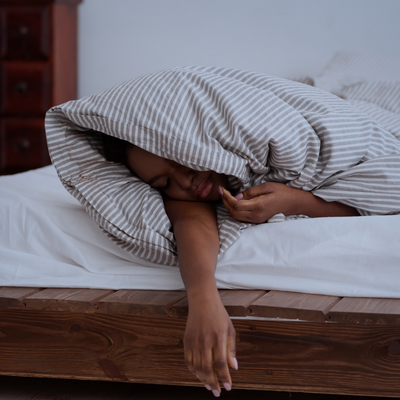


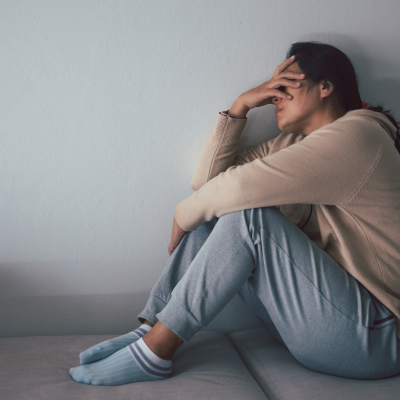
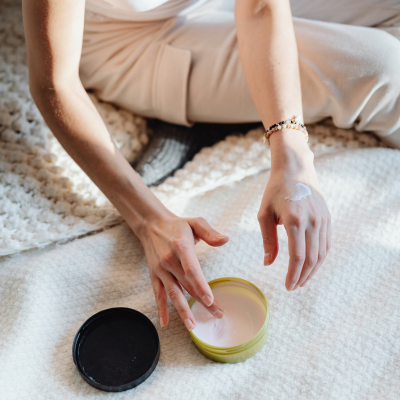
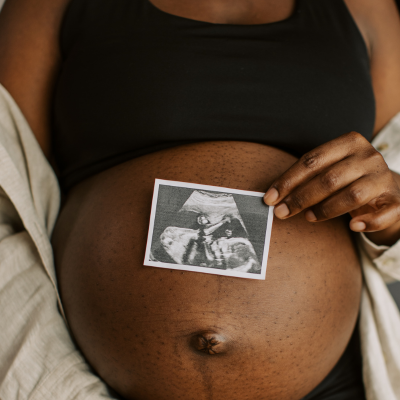
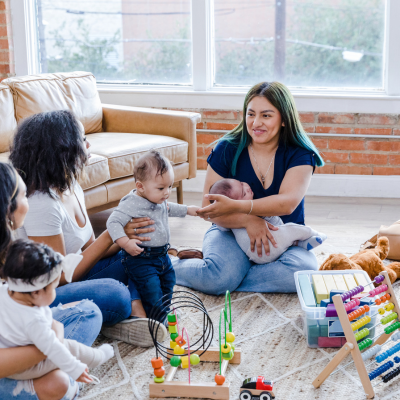

Comments +